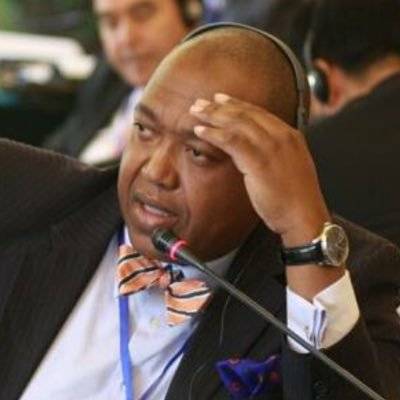A number of people have been arrested in Iran over the years accused of spying against the government. Last year, the authorities arrested five Iranians on charges of spying for Israel, Britain and Germany. They were convicted and at least two were given prison sentences. In July 2017, the authorities rounded up seventeen of its citizens and charged them with spying for the US Central Intelligence Agency (CIA). Accusations of espionage have also been levelled at many Iranians in the diaspora, especially journalists and charity workers.
![Supporters hold a photo of Nazanin Zaghari-Ratcliffe during a vigil for British-Iranian mother imprisoned in Tehran outisde the Iranian Embassy on January 16, 2017 in London, England [Chris J Ratcliffe/Getty Images]](https://i0.wp.com/www.middleeastmonitor.com/wp-content/uploads/2020/09/GettyImages-631825184.jpg?resize=500%2C333&ssl=1)
Supporters hold a photo of Nazanin Zaghari-Ratcliffe during a vigil for British-Iranian mother imprisoned in Tehran outside the Iranian Embassy on 16 January 2017 in London, UK [Chris J Ratcliffe/Getty Images]
There has been widespread criticism of Iran for targeting journalists and charity workers; Tehran is said to be paranoid. However, Iran’s nuclear development programme has been a singular concern and is the reason for this paranoia, as it has come under a lot of pressure to end its nuclear programme, mainly from Israel and the US, which argue that a nuclear Iran will pose a security threat to the occupation state.
In the recent past, Arab countries including Saudi Arabia have joined the call for Iran to drop its nuclear plans. The Saudis insist that any renegotiated nuclear deal with Iran must be “stronger and longer” than the 2015 Joint Comprehensive Plan of Action (JCPOA) in order to ensure that “Iran is prevented from acquiring nuclear weapons or developing the necessary capabilities.” Iran insists that its nuclear programme is for peaceful purposes only to augment its existing energy production.
READ: Iran will withdraw from nuclear talks if parties are not serious
As a result, Iran’s sovereignty has been violated frequently over the past couple of years, mainly, it is believed, by Israel. In August last year, for example, it is generally held that Israeli agents shot and killed Abu Muhammad Al-Masri in Tehran. Although Iranian officials claim that this was at the behest of the US, no one — not the US, Israel nor Al-Qaeda — has claimed responsibility publicly. This was one of many incidents involving foreign powers operating inside Iran.
However, it was the January 2020 killing of one of Iran’s highest-ranking officials, General Qassem Soleimani, which indicated that all was not well with the country’s preparedness when dealing with espionage. The head of the Islamic Revolutionary Guard Corps’ elite Quds Force was killed in a US drone strike near Baghdad International Airport in Iraq. This led to a huge outpouring of anger on the streets of Tehran, with many calls for revenge and retaliation. The then US President, Donald Trump, claimed responsibility for killing Soleimani. Israel apparently provided technical assistance and intelligence. According to the Iranian Justice Ministry, a man identified as Mahmoud MM passed on information about Soleimani’s whereabouts to the CIA and Israel’s Mossad in return for money. The Islamic Republic News Agency (IRNA) says that he will soon be executed.

Will the assassination of Qassem Soleimani lead to war? – Cartoon [Sabaaneh/MiddleEastMonitor]
Moreover, it is clear that there are people within Iran ready and willing to work with foreign powers against their own government. The majority of incidents in Iran must have had the involvement of Iranians working on behalf of foreign powers. Although Israel would not have been able to carry out the Natanz attack without inside help, little is known about those who might have provided it.
READ: Iran demands US lift sanctions from 1,500 people to revive nuclear deal
The seriousness of the Natanz bombing has led to calls for an overhaul of the entire vetting system for personnel at all sensitive installations in Iran. More stringent vetting procedures are unlikely to discourage potential collaborators, though, unless the dire economic situation and sanctions are addressed. The economic conditions mean that Iranians are ready to work against the state in return for cash.
The current talks in Vienna aimed at reviving the JCPOA are important for Iran, as they could lead to the easing of sanctions and the desperate economic situation. Nevertheless, the proliferation of democratic movements and those calling for reforms inside Iran cannot be ruled out when looking for those behind the increase in espionage against the state. It is becoming increasingly obvious that as long as the government and authorities in Tehran insist on maintaining the socio-political status quo, the willingness of Iranians to collaborate with foreign powers is going to increase.
The views expressed in this article belong to the author and do not necessarily reflect the editorial policy of Middle East Monitor.

![Iranian President Hassan Rouhani in Tehran, Iran on February 16, 2021 [Presidency of Iran/Anadolu Agency]](https://i0.wp.com/www.middleeastmonitor.com/wp-content/uploads/2021/02/20210215_2_46889143_62549519.jpg?fit=920%2C613&ssl=1)







